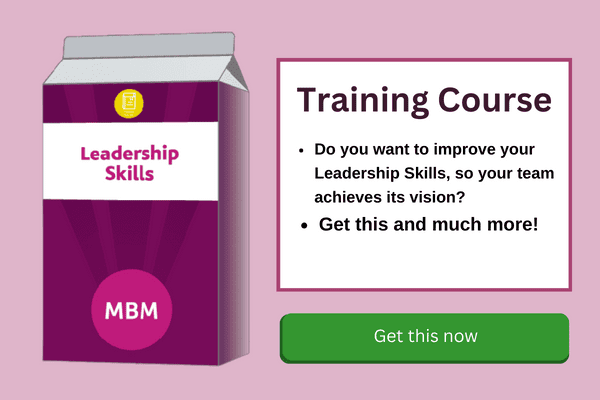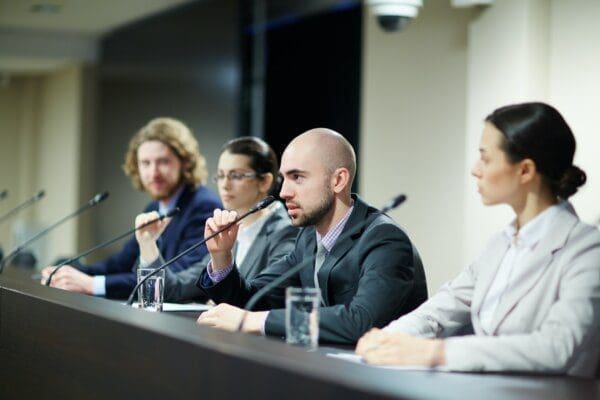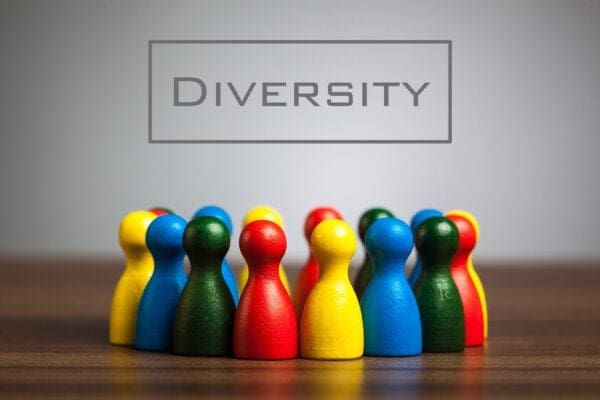Organisational Design and Development
The below is a module submission for the CIPD Level 7 certification, kindly shared by one of our clients to help you on your own HR journey. This submission is about organisational design and development.
1.0 Executive Summary
According to Lock (2022), the global tourism and travel sector is one of the most economically significant industries, contributing a huge $4.67 trillion to the world’s Gross Domestic Products (GDP). As an industry it is not easy to define as there is not one clear product, which is similarly reflected in the variety of services delivered by The Travel Group.
Due to the global nature of tourism, it is a turbulent industry which is subject to continual change. It has been impacted in recent years by such issues as terrorism, volatility of extreme weather conditions such as volcanic ash and viruses such as Norovirus on cruise ships and of course the Coronavirus pandemic, which has affected domestic and international travel since early 2020 (Statista, 2022).
Thankfully due to the lifting of global travel restrictions the industry is in a period of recovery and the market is bouncing back, however this is not without human resourcing issues for The Travel Group, which this report highlights.
The organisational design and structure of The Travel Group needs to be future proofed in so far as ensuring their continued growth and success for the future. In a highly competitive market, they cannot stand still and must explore opportunities not only to achieve efficiencies but also to operate as effectively as possible, not only to achieve the greatest return for shareholders, but also to ensure they are an employer of choice within the industry with a highly motivated and committed workforce.
This report outlines clear recommendations for the organisational design of the UK business, Travel UK, which the leadership team can implement to drive an employee-centric culture where people enjoy working and in turn deliver the highest standards of customer service.
2.0 Introduction
According to the CIPD (2022) organisation design is the review of what an organisation wants and needs, an analysis of the gap between its current state and where it wants to be in the future, and the design of organisational practices that will bridge that gap.

There is a clear need for organisational design change for Travel UK to support the Group remaining competitive in the future, based on the following issues that have been identified:
- Historic mergers creating different terms and conditions between employees, causing instability and potential industrial action.
- Duplication of support services.
- Global context and volatility of the travel industry (particularly in a post-Covid 19 world).
- Technological advancements changing consumer buying behaviour around holidays and increasing competition (such as Air BnB).
In summary, these are issues that can be addressed through some structural organisational changes; however, it appears that the most significant challenge is to meet the strategic desire for a happy, engaged workforce with a culture that stands them apart from competitors.
As Barrett (2006) concluded in his research of over 2,000 organisations, values and behaviours drive culture, employee fulfilment, customer satisfaction and ultimately shareholder value. Therefore, any organisational design change needs to be led with values and behaviours in mind.
3.0 Organisational Design
Organisational design is always dependent on the context of what is happening internally and externally. Taking the internal context, it would be useful to consider the explanation of Jurevicius (2021) regarding the theory of the McKinsey 7S model, which was developed by Robert Waterman and Tom Peters during the early 1980’s.
These are split into three ‘hard’ elements which are in direct control of the management and can be easily defined:
- Strategy: the plan of action, or the roadmap or the blueprint by way of which an organisation gains a competitive advantage or a leadership edge.
- Structure: This refers to organisational structure or the reporting pattern.
- Systems: This includes the day-to-day activities in which the staff members involve themselves for ensuring the completion of their assigned tasks.
Then come the four ‘soft’ elements which are less tangible and difficult to define as they are dominated by the culture. However, they are equally as important as the hard elements in determining an organisation’s success. These are:
- Shared Values: The core values which get reflected within the organisational culture or influence the code of ethics.
- Style: This lays emphasis on the leadership style and how it influences the strategic decisions, people motivation and organisational performance.
- Staff: The general staff or the capabilities of the employees.
- Skills: The core competencies or the key skills of the employees play a vital role in defining the organisational success.
Before diving into any changes, it would be valuable to consider using a diagnostic tool such as the Congruence model which was developed by organisational theorists Nadler and Tushman (1980). This is based on the principle that for an organisation to succeed, there needs to be harmony between the work that is done, the people who do it, the organisational structure, and the culture. When they all fit together, they are ‘congruent’. Engaging front-line employees as well as managers in any changes can help them feel included and that they have a voice. Communication and engagement is a recurring theme within the seven principles of best practice for change management identified by Prosci (2022), which would be useful to follow.

We should look to use a variety of communications channels in our engagement, utilising technology available such as online town-hall meetings with groups of employees, all-staff emails and use of company-wide intranet or application-based tools. We should ensure that there is a consistent drip-feed of communications, even when there isn’t necessarily anything new to update – this helps to quash the rumour mill and help all employees feel informed, whether they are impacted directly by the changes or not.
From an external perspective, the travel industry’s volatility and competitiveness is a key driver in changing the current organisational structure of Travel UK. The focus on divisions, categorised around geography, customer, and product has led to duplication which is not efficient, and the business would benefit from streamlining the support departments that exist within each operational division (Finance, IT, Marketing, Public Relations/Business Change and Human Resources) and adopting a ‘shared services’ model.
As Francis, Holbeche and Reddington (2017) outline, the idea behind shared services is that activities performed locally by business units are re-engineered and streamlined and then combined so that the business units ‘share’ the service delivery solution. As well as realising efficiencies, it can break down issues which can exist between the different technical professions and encourage a more collaborative way of working. It also helps to focus on the needs of the customer.
By organising these resources more effectively, Travel UK would be primed to achieve greater success. However, before designing what these shared services might look like, it is important to engage with the end-users of these services, as key stakeholders in the implementation of any change. Getting the buy-in from the operational divisional department heads is going to be a critical step in taking people with them on the change journey. These line managers have a leadership role to play in ‘selling’ the benefits to their wider team members, who will become the end-users of these services.
As well as early engagement with employees and managers, we must participate in meaningful consultation with the relevant Trade Unions. The fact that there is a threat of industrial action needs to be taken seriously and the impact of these mustn’t be under-estimated, as we have seen them make high profile media stories which impact reputation in recent years, such as British Airways and the RMT with train travel. Ensuring the Trade Unions have shared ownership in any proposed structural changes is vital and the HR function plays an important role in ensuring that the lines of communication are kept open, as explored in episode 119 of the CIPD podcast (2016).
Having a focus on collaborative working with the Unions so that through the change process there are opportunities which are advantageous in the long term for employees, for instance upskilling jobs and investing in learning and development will support the co-creation of the future. Whilst efficiencies are inevitable, by working with the Unions there could also be mutually beneficial opportunities for employees who are looking for a change, for instance offering early retirement schemes or voluntary reduction in working hours.
Streamlining and changing the structure also offers the ideal time to look across employment contracts and terms and conditions to ‘harmonise’ them and provide some consistency across the organisation. Whilst we must be sensitive to any arrangements which were subject to Transfer of Undertakings (Protection of Employment) (TUPE) regulations, there is an economic, technical or organisational (ETO) reason to make these changes to the workforce, as outlined by ACAS (2021).
Sticky Learning ® is 7 times more effective than 1-day training courses. Plus, you will get a Chain of Evidence proving your Return on Investment. Discover soft skills training that changes behaviours long term.

4.0 PESTEL Analysis
As the CIPD (2021) outlines, a PESTEL analysis is useful to guide strategic decision-making and organisational design, and stands for: Political, Economic, Social, Technological, Environmental and Legal.
Taking each of these in turn, it is useful for us to consider factors which might impact The Travel Group and our future organisational design changes.
Political

- The Russia/Ukraine war is having an impact on travel around parts of Europe as the conflict continues. There are concerns that this could lead to World War three, which would have potentially devastating impacts on the travel industry if there were to be an increased risk of attacks on civilian travellers. There is little we can do to plan for the potential impacts of war, other than ensuring we remain vigilant to all Government advice doing all we can to protect our employees and customers.
- The bounce back of air travel following the Coronavirus pandemic has led to significant delays by the UK Security Vetting (UKSV) service. This in turn has had a knock-on effect to flight delays and queues at airports which as reported in The World News (2022) Unions say could go on throughout the rest of 2022. As an international business, we will do all we can to guide and advise our employees through this process as quickly as possible. We should also work with the Unions and support them with their efforts to lobby the Government in providing additional resources to support this service before the summer holiday rush.
Economic
- During the pandemic in the UK the Government’s job retention scheme (known as furlough) was widely used, however many people sought alternative employment. There is no denying this continues to have a ripple effect on the travel sector, as we saw with the unlawful redundancies of P&O Ferries’ crew in early 2022. And MP’s lobbying for the airports and airlines to pay staff above the market rates to attract people back to the sector, as reported in the Daily Mail (2022) We may need to factor wage increases and incentives into our overall resourcing strategy to attract and maintain the best talent. Additionally, we may all be encouraged to live with Covid now, but it continues to impact and disrupt employment when people are unwell and unable to work.
- The rising cost of living in the UK is impacting the disposable income available to many, which will impact the amount of travel people will be able to do, particularly families feeling the squeeze. There has been an ongoing rise of ‘staycation’ culture, with less travel abroad ever since the credit crunch of 2007. This may lead to further reductions and job losses in the future.
- The rising cost of fuel and various taxations could have a significant impact on the running costs of both the Group’s airline and cruise lines. Consequently, rising costs will need to be transferred to the customer. Again, higher costs may mean less overall travel by customers and therefore have an impact on the group needing to reduce in size in the future.
Social
- As reported by Delahaye (2021), according to the specialist travel company for the over 50’s Saga Holidays, post-pandemic spend on travel for this age group is set to rise as they postponed smaller trips in 2020 and 2021, they are looking to treat themselves to ‘once in a lifetime’ type holidays. Therefore, having trained staff available to cater for the different needs of older people will be imperative for Travel UK. For instance, employing experienced Tour Managers who are knowledgeable about different geographical areas and provide escorted tours.
- The globalisation of the world means that more travellers are looking to experience cultural events and festivals, which provides an opportunity for the Group to market themselves to new customers, particularly business customers. In addition, consumer trends are constantly changing, therefore it is important for the Group to keep abreast of the latest tastes and in travel. In both instances, there could be the need to change destinations offered, which could mean a need for retraining existing staff or recruitment of new people to be able to increase the knowledge that exists in the business of these different places in the world.
Technological
- Technology has a significant role to play on the travel industry, with the rise of online apps such as Air Bnb and low-cost airlines. This makes travel more accessible to many, however, does mean it is an ever increasingly competitive sector for Travel UK to contend with. It could lead to a strategic decision to invest in their own app-based system, to stand out from competitors. This may require recruitment of specialist experts who are able to support this area of growth.
- Space tourism is being talked about and planned for with increasing vigour with Tomkin (2022) reporting that space tourism is being planned as early as 2024. The skills required to take people to space are incredibly niche and therefore the design of this team would need a great deal of consideration, potentially head-hunting very scientific and technical experts.
Environmental
- Climate change and global warming are two significant environmental factors which cannot be ignored in the travel industry. Airlines and cruise liners use large quantities of fuel, and some travellers will be considering more sustainable ways to travel – for instance swapping planes for trains, which is a slogan adopted by climate change action group Possible. Possible (2022) is lobbying for everyone to fly less but also to introduce a ‘frequent flyer levy’ in the UK which could impact employees who fly regularly as part of their duties.
- As outlined by the Center for Responsible Travel (2019) sustainable tourism helps to protect natural environments, wildlife, and resources, as well as providing authentic experiences which celebrate and conserve heritage and culture. The experiences and holidays offered to customers need to take this into consideration and employees across the Group must be trained appropriately so that they are knowledgeable and sensitive to the geographies they are working and guiding customers in and around.
Legal

- Regulations and laws will now be different in Travel UK than the group, since leaving the EU. This will need to be considered in the event of any group-wide restructuring to ensure that the appropriate employment rules (such as TUPE) are followed in each country. Having specialist legal counsel in-house or as a retained service would be beneficial to ensure the Group is compliant, such as those offered by organisations such as Peninsula.
5.0 Sustainability and Success
To be successful in the long-term, the structural and contractual changes must be underpinned by cultural improvements which support the non-financial organisational performance measures.
In doing this, I would suggest a long-term campaign to ‘win hearts and minds’ so that everything done in the organisation is underpinned with an intent on enhancing their environmental, social and economic impact – the goal of sustainability in business as explained by the Green Business Bureau (2021).
As explained by Deloitte (2022), organisational culture has been described as an iceberg – it is what you show on the tip outwardly to the world in terms of your company pledge or service offering but also what goes on under the surface when people aren’t looking. In a nutshell – how we do things around here. To change culture requires ‘unfreezing’ the current beliefs by analysing those traditions and ‘norms’ that are currently there, delving into where they might have come from – for instance companies with strong leaders often have legacy cultures from previous CEO’s. Then comes a stage of changing and setting new values and beliefs – this doesn’t happen by accident and requires the leaders of the organisation setting out those behaviours they want to engender and role modelling them. Then comes the ‘refreezing’ of the organisation to lock-in the new culture. Netflix is often used in best practice of achieving culture change, as explored by McCord (2018).
None of this happens overnight and there needs to be a long-term commitment to become a purpose-driven company. This starts at the top with the leadership reinforcing and rewarding positive behaviours, for instance through encouraging employee-led initiatives, having a sustainability scorecard and competitions between departments and functions, as outlined by the Green Business Bureau (2021).
All of the Travel Group employees need to be aware of the sustainability goal and the importance that is being placed on it so that it is embedded as an approach and reflected in people’s behaviours – ideally both in and out of work. Whilst we cannot dictate what people do in their own time, we can encourage sustainable living by making it easy for people to make better choices. For instance, in the employee benefits that are on offer and team-building initiatives which could incorporate activities such as tree-planting or local community clean-ups. When recruiting or promoting people, testing candidates against the value of sustainability can bolster the culture, as reinforced by Guadalupe, Kinias and Schloderer (2021).
However we need to be mindful that whilst we have a desire to recruit people whose personal values align with the organisation’s sustainability culture, we remain inclusive as an employer. Some people can be cynical and we do not want to risk being seen to ‘greenwash’ the organisation, which Recycle Coach (2022) suggest can have a detrimental impact both on reputation and employee engagement.
There is an obvious tension around travel and environmental impact, as outlined in the PESTEL analysis, particularly air travel which has the highest carbon emissions than any other mode of transport, as explained by Timperley (2020). Many organisations with strong environmental credentials encourage their employees to use modes of public transport to support their commute to and from work, and with the widespread of hybrid working practices, the need to travel for internal meetings can be significantly reduced using video meeting technology.
Adopting a sustainability mindset requires changes to behaviours, but if every single employee and customer of the Group were encouraged to do just one small thing it would make a huge impact. The role of HR is important in implementing and communicating the changes and can support the leadership team with the overall corporate responsibility strategy. As the CIPD (2022) outlines, HR’s role can take various forms, particularly in the absence of a Corporate Social Responsibility (CSR) team, not just in employment and people management practices but also in supporting the communication and upskilling of people leaders to embed good practices. They can also be the conduit for creating volunteering schemes which are great ways for companies to reach different community groups and offer mutually beneficial contribution to both parties.
Finally, according to Robinson (2020), a post pandemic world offers businesses a great opportunity to help organisations switch bad behaviours such as long commutes and profit over people, for good ones, such as a clear purpose, overt values, and a renewed focus on wellbeing.
6.0 References for Organisational Design and Development
ACAS (2021). Changing an Employment Contract after a TUPE transfer. Available at: https://www.acas.org.uk/changing-an-employment-contract-after-a-tupe-transfer-employer-responsibilities (accessed 13/4/22)
Barrett, R. (2006). Building a Values-Driven Organization: A Whole-System Approach to Cultural Transformation. Available at: https://www.valuescentre.com/wp-content/uploads/PDF_Resources/Additional_Articles/Article_Importance_of_Values.pdf (accessed 4/4/22)
Center For Responsible Travel (2019). The Case for Responsible Travel: Trends & Statistics 2019. Available at: https://www.responsibletravel.org/wp-content/uploads/sites/213/2021/03/trends-and-statistics-2019.pdf (accessed 1/4/22).
CIPD (2022). Corporate Responsibility: An introduction. 28/3/22. Available at: https://www.cipd.co.uk/knowledge/strategy/corporate-responsibility/factsheet (accessed 1/4/22).
CIPD (2021). PESTLE Analysis. Available at: https://www.cipd.co.uk/knowledge/strategy/organisational-development/pestle-analysis-factsheet (accessed 13/4/22)
CIPD (2016). Trade Unions – Episode 119. Available at: https://www.cipd.co.uk/podcasts/trade-unions. (Accessed 13/4/22)
Delahaye, J. (2021). Travel expert talks post Covid and what Brits are Booking now. The Mirror. 21/1/21. Available at: https://www.mirror.co.uk/travel/news/travel-expert-talks-post-covid-23353501 (Accessed 1/4/22).
Deloitte (2022). Culture Shift: Changing Beliefs, Behaviours and Outcomes. Deloitte. Available at: https://www2.deloitte.com/us/en/pages/finance/articles/cfo-insights-culture-shift-beliefs-behaviors-outcomes.html (Accessed 1/4/22)
McCord, P. (2018). Powerful, Building a Culture of Freedom and Responsibility. United States. Mission Day.
Francis, H. Holbeche, L. & Reddington, M. (2017), People and organisational development: a new agenda for organisational effectiveness. London. Chartered Institute of Personnel and Development; Kogan Page.
Guadalupe, M. Kinias, Z. and Schloderer, F. (2021). Aligning Individual and Organisational Values. 26/10/21. Available at: https://knowledge.insead.edu/leadership-organisations/aligning-individual-and-organisational-values-17561 Accessed 13/4/22
Jurevicius, O. (2021). McKinsey 7S Model. Available at: https://strategicmanagementinsight.com/tools/mckinsey-7s-model-framework/#:~:text=McKinsey%207S%20model%20is%20a%20t
ool%20that%20analyzes,organization%20to%20achieve%20its%2
0objectives.%20Understanding%20the%20tool (accessed 1/4/22)
Lock, S (2022) Global Tourism Industry – statistics and facts. Available at: https://www.statista.com/topics/962/global-tourism/ (Accessed: 14/4/22)
McLaughlin, C. Robinson, J. Wynn-Davies, S. ‘Get a Grip or Get Out’ MP’s turn on airport bosses as passengers continue to face huge queues, flight cancellations and baggage chaos in Easter Getaway hell. Daily Mail. 5/5/22. Available at: https://www.dailymail.co.uk/news/article-10686069/MPs-turn-airport-bosses-passengers-face-huge-queues-flight-cancellations.html (accessed 13/4/22)
Nadler, D. A., & Tushman, M. L. (1980). A model for diagnosing organizational behavior. Volume 9, Issue 2, pp 35-51.
Possible (2022). Time to make flying fairer. 22/3/22. Available at: https://www.wearepossible.org/actions-blog/the-frequent-flight-levy-the-way-to-make-fewer-flights-fair-for-everyone-3j5t4 (Accessed 13/4/22).
Prosci (2022). Best practices in Change Management. Available at: https://www.prosci.com/resources/articles/change-management-best-practices#:~:text=These%20are%20the%20best%20practices%20of
%20change%20management%2C,Communicate%20frequently%20a
nd%20openly%20Engage%20with%20front-line%20employees (Accessed 13/4/22)
Recycle Coach (2022). Top 5 Greenwashing Examples from Major Brands. 31/1/22. Available at: https://recyclecoach.com/blog/top-5-greenwashing-examples-from-major-brands/#:~:text=Greenwashing%20is%20when%20a%20company%20fakes%20their%20commitment,be%20eco-friendly%20%E2%80%93%20for%20sales%20and%20other%20gains (Accessed 13/4/22)
Robinson, T. (2020). Leading in a Changing World. 3/8/20. Available at: https://www.cipd.co.uk/knowledge/strategy/organisational-development/thought-pieces/leading-changing-world (Accessed 1/4/22)
Statista (2021). Coronavirus Impact on the Tourism Industry. Available at: https://www.statista.com/study/70298/coronavirus-impact-on-the-tourism-industry/ (accessed 1/4/22)
The Green Business Bureau (2021). Sustainability 101, what is a sustainable business. Green Business Bureau. 14/9/21. Available at: https://greenbusinessbureau.com/topics/sustainability-benefits-topics/sustainability-101-what-is-a-sustainable-business/#:~:text=%20What%20is%20a%20Sustainable%20Business%3F%20%201,grow%20their%20operations%20and%20pay%20their…%20More%20 (Accessed 1/4/22).
The World News (2022). Airports Blame Government Vetting Process for Staff Shortages. TW News. 5/4/22. Available at: https://twnews.co.uk/gb-news/airlines-blame-government-vetting-process-for-staff-shortages#:~:text=Airlines%20blame%20government%20vetting%20process%20for%20staff%
20shortages,that%20have%20led%20to%20flight%20cancellations%20this%20week. (Accessed 13/4/22).
Timperley, J (2020). Should We Give Up Flying for the sake of the Climate? 19/2/22. Available at: https://www.bbc.com/future/article/20200218-climate-change-how-to-cut-your-carbon-emissions-when-flying (Accessed 13/4/22).
Tomkin, S (2022). Space Balloon Company Offers First Look at its Luxury Cabins. Daily Mail. 13/4/22. Available at: https://www.dailymail.co.uk/sciencetech/article-10714633/Space-balloon-company-offers-look-luxury-cabins.html. (accessed 15/4/22).
7.0 Bibliography
ACAS (2022) Tupe Transfers Available at: https://www.acas.org.uk/tupe#:~:text=TUPE%20regulations%20protect%20em
ployees%E2%80%99%20rights%20when%20they%20transfer,company%20tak
es%20over%20the%20contract%20for%20office%20cleaning (accessed 12/4/22)
Islam, F (2021) Furlough Scheme Ends with almost 1million in limbo 30/9/21. Available at: https://www.bbc.co.uk/news/business-58735299 (Accessed 23/3/22)
Kenton, W. (2021) Organizational Structure. Available at: https://www.investopedia.com/terms/o/organizational-structure.asp (Accessed 23/3/22)
McDonald, L.(2022) What is HR’s role in Maintaining Effective Working Relationships with Unions? Available at: https://smallbusiness.chron.com/hrs-role-maintaining-effective-working-relationships-unions-20468.html (accessed 1/4/22)
Morgan, M. (2022) Comment: Employers who looked after staff will now thrive. 22/3/22. Available at: https://travelweekly.co.uk/in-depth/comment/comment-employers-who-looked-after-staff-will-now-thrive (Accessed 4/4/22)
Parekh, M (2022) Britons facing ’12 months’ of travel delays due to staff shortages. 12/4/22/ Available at: https://www.telegraph.co.uk/news/2022/04/12/britons-facing-12-months-travel-delays-due-staff-shortages/ (Accessed 14/4/22)
Peninsula Group. https://hr.peninsulagrouplimited.com/employment-law-advice/?msclkid=ab7d016ba3951e352c12633d70e3c9d8&utm_source=bing&utm_medium=cpc&
utm_campaign=Employment%20Law&utm_term=employment%20law%20experts&utm
_content=Specialists (Accessed 12/4/22)
Staff Squared HR. (2020) Good Work, The Taylor Review of Modern Working Practices. 1/5/20. https://www.staffsquared.com/blog/good-work-the-taylor-review-of-modern-working-practices/ (accessed 1/4/22)
Sharp, R. (2019) A new Dawn for Trade Unions? Available at: https://www.hrmagazine.co.uk/content/features/a-new-dawn-for-trade-unions (accessed 1/4/22)
The Guardian (2022) UK Travellers Face Disruption as UK Getaway Begins Available at: https://www.theguardian.com/uk-news/2022/apr/03/uk-travellers-face-disruption-as-easter-holiday-getaway-begins (Accessed 4/4/22)




